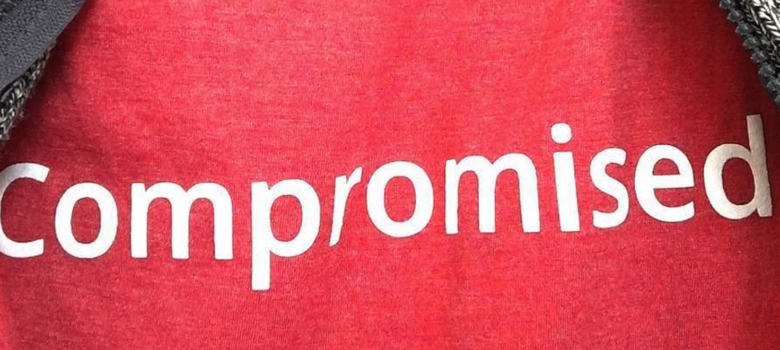The long legislative road of Bill C-11 comes to an end later today as nearly 2 1/2 years after the original Bill C-10 was first tabled in the House of Commons by then-Heritage Minister Steven Guilbeault, the Senate will vote to approve the bill. I’ve been asked repeatedly this week about what now lies ahead, but I think it is worth one more look back. I have long believed that politics invariably involves compromise as governments look to maximize the political benefit and limit the political risk from any given policy. The emphasis on compromise is why stakeholders rarely walk away entirely happy on most issues that feature a diversity of views, whether it is copyright, privacy, or Internet regulation. Yet with Bill C-11, compromise from the government never came.
The lengths the government was willing to go to avoid compromise still astonishes me. Canadian Heritage Minister Pablo Rodriguez, who has largely avoided publicly addressing the bill ever since he was surprised by tough questions on it from Vassy Kapelos at the Prime Time Conference, spent months denying what was evident to anyone who took the time to read it (including the former chair of the CRTC, independent Senators, experts, and digital creators), namely that user content is subject to potential regulation in Bill C-11. There was no bottom to these false denials: indigenous creators were disrespected, opponents investigated, critics ignored, and debate repeatedly cut off with time allocation motions.
Once the bill arrived at the Senate, the bill was the subject of extensive hearings with many of the voices excluded at the embarrassing House Heritage committee review given a chance to voice their concerns. Rodriguez appeared before the Senate committee, but the Senators weren’t buying what he was selling. The committee picked actual evidence over vacuous spin and approved a compromise provision that addressed the government’s stated objectives and scoped out user content. The full Senate overwhelmingly approved the compromise.
While there was some hope that the government would accept it, Rodriguez made it clear to Kapelos that he never had any intent of accepting any compromises. His words? “There are amendments that have zero impact on the bill and other that may have some and we will not accept them.” Sure enough, the government did not accept the amendment, even though it was unable to provide a credible reason for the rejection. Once the bill was back at the Senate, Senator Marc Gold gave a lengthy speech on the reason for rejection, but got the law wrong and proved yet again that there is no sound policy reason for rejecting the compromise.
While there was no shortage of hyperbole throughout Bill C-11’s journey, the lingering question is why was the government so determined to retain user content regulation in the bill? When Bill C-10 was introduced, it was excluded. The decision to amend the bill by removing an exception on user content late in that bill’s process literally sparked years of opposition and concern. Many of the traditional Canadian Heritage stakeholders didn’t care about the issue at all. In fact, if you were to ask whether they would have preferred passing a bill without user content in 2021 or waiting until 2023 to get a bill with it in, my guess is they would unanimously take passing the bill two years ago over a delayed, contentious process that offers practically no additional benefits to the sector by including user content regulation. That leaves either the prospect that the government wants to retain the power to regulate user content (a real possibility) or that, egged on by a handful of largely Quebec-based culture groups, it was unwilling to admit that it had made a legislative mistake. If so, given the choice between Quebec-based lobby groups and admitting error or the myriad of opponents, the government preferred the appearance of being compromised over compromise.
So what now? Canadian Heritage Minister Pablo Rodriguez will undoubtedly reappear with the bill’s passage and his department will line up supportive comments from lobby groups to offer praise to the government for passing Bill C-11. The legislation will head to its next phase including a policy direction consultation that will seek to clean up at least some of the uncertainty in the bill (that Bill C-11 was subject to so much scrutiny yet still leaves so much unanswered is hard to explain), followed by years of CRTC hearings and appeals. Sometime in the future – best guess would be 2025 or 2026 – digital creators will have been forced to make multiple trips to Gatineau to urge a hands-off regulatory approach and the industry will find that the bill generates far less than it expected. Further, those modest benefits will be accompanied by revised Canadian content policies that will leave some doubting whether the trade-off was worth it. At that point, I expect the groups to look to the government to develop a compromise policy. There are no guarantees it will come.









So whose oxen are getting gored here if this isn’t done to us?
Xi and Harper’s? Did they lock us into this?
They did the same with c16. Criminalize accidental misgendering, claim not to, refuse to amend the bill or clarify what they claim to intend. Then push it through. One senator called opposition to this bill “genocide” while saying feminists can take it to the supreme court later. As if he is granting something. Immediate result was “Jessica Yaniv” demanding immigrant women give beauty treatments to Jessica’s penis and filing human rights complaints when they refused. Feminist groups also did not want males working at rape care centres for women and were vilified for this. The justice minister at the time did nothing to resolve these preventable outrages. And while she showed integrity in one area, she also said that “medical assistance in dying” was her proudest achievement.
The government refused to meet with any of the truckers even as the public health case for policy was out of date. Instead it reacted with unprecedented abuse of power and only stopped because they triggered a bank run.
(That is their attitude to compromise. Authoritarian crack down preceded by dehumanizing smears and an astroturfed nazi flag to gin up hate.)
YouTube has a new policy, cost pass through https://support.google.com/youtube/answer/12843008?hl=en , that addresses how it will handle costs associated with laws like Bill C11. Under this policy, payments to creators will be based on revenue less any fees or taxes resulting from laws like C11. That means, if Bill C11 required YouTube to pay 10% of its revenue into a Cancon fund then payments to creators will be reduced by 10%. In effect, creators’ money will be used to fund programs for CBC, Bell, Rogers and Corus.
This is brutal.
It is despicable that CBC, Bell and the few other bloated yaks resting on this oligopoly are going to skim the revenue off the ambitious Canadians who create stuff that people actually like.
Whether or not your on the political left or the right, you have to see what a scam this is by Trudeau’s crooked government.
Shouldn’t this be cause of a class action suit?
Well – anyone can try starting a case for any reason.
This case, though, looks like a straight contractual term – the type of thing where if you don’t like it, you can walk away and choose a different partner.
What specifics suggest the basis for a suit at all? The class of ” Canadian YouTubers” would make sense, but I’m not seeing the underlying case here.
Pingback: Trudeau's Internet Bill become Law! Plus: The Bill C-11 Compromise That Never Came, by Michael Geist - Puget Sound Radio
So … who’s up for a constitutionality challenge?
Do you have a million dollars and ten years?
Definitely not the $$.
And – not a lawyer, not even close, but…
There is GoFundMe, especially if the concerns run deep enough and far enough.
Given the potential large scale effects, maybe there is a reasonable basis for enjoining the CRTC from taking any action under this legislation until the matter before the court is fully resolved.
The question of constitutionality did come up at committee, albeit briefly. Even there, the suggestion arose that this matter might need to be resolved at the SCC.
The Charter is useless. Even a traffic judge can rule the violation of it as “for the safety of the people” under S. 1
Not Charter. Constitution, separation of powers.
Provinces regulate businesses selling something. Provinces regulate content – think movies, or, more specifically, Peleton.
The Broadcast Act came about because signals broadcast over the spectrum, for anyone to receive, do not stop at borders, either provincial or national. That drives the requirement for federal involvement. But there is no broadcasting on the internet. It is a private contracted connections.
If this needs to be regulated, then it is a provincial responsibility.
This exact point came up with the carbon fee during that case. That only becomes a federal backstop role if a province is doing nothing about it.
Pingback: Bill C–11 Becomes Law – Pixel Envy
Pingback: Bill C-11 Becomes Law – Digital First Canada
Pingback: Links 28/04/2023: Nitrux 2.8 and GNU Lightning 2.2.2 | Techrights
Pingback: Bill C-11 prevails after Senate approval - thetechnewslite
Pingback: Bill C-11 prevails after Senate approval - IT Point Plus
Do you yet believe there is a single, unifying conscioussness working very quickly, cross governments and platforms, to villainize any form of unregulated thought and speech? How about the UN wiping out hope of free speech this week?
Pingback: Законопроект C-11 превалирует после одобрения Сенатом - Nachedeu
Pingback: Maxime Bernier warns Trudeau's Bill C-11 could lead to Chinese-style 'wall' around the internet - LifeSite - Modern Christian
Pingback: Maxime Bernier warns Trudeau's Bill C-11 could lead to Chinese-style 'wall' around the internet - LifeSite - Christianity House